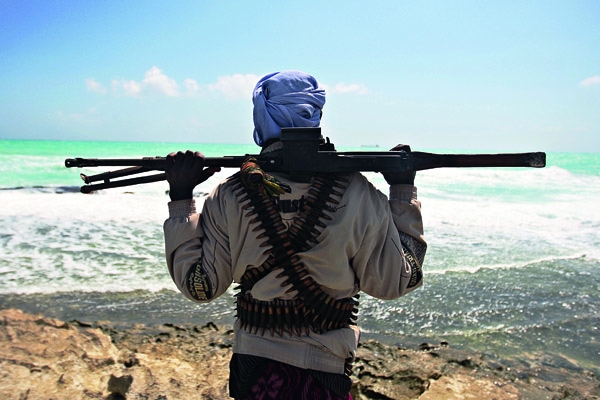In his introduction, James Fergusson apologises for the title of his book. Somalia, he writes, may no longer be the most dangerous place on earth. Since the summer of 2012, a newly elected government under a former university professor who once worked for the UN is bringing stability to the country, exiled Somalis are going home, Mogadishu is being rebuilt and the pirate menace, if not exactly under control, is being contained. It may be so. But the country Fergusson describes is the stuff of nightmares.
In 1960, the former British protectorate and Italian colony united to become an independent Somali republic, under a civilian government. Nine years later, General Siad Barre took power in a military coup and ruled with scant regard for the human rights of his citizens until 1991, when the country’s 140 clans, sub-clans and sub-sub-clans fractured into civil war.
Worse was to come. The south fell under the sway of the Islamic Courts Union, which brought Sharia justice and Salafist doctrine. And though that was not a particularly terrible reign, after it was crushed, with the help of Ethiopian troops, al-Shabaab, extremists with ties to al-Qae’da, occupied swathes of the country, until they too — or so it is hoped — were checked by the Uganda-led African Union mission.
And in the wake of all this have come competing geopolitical and religious interests, weapons pouring in from every direction, soldiers of fortune, warlords and criminal gangs, Islamic fighters, suicide bombers, foreign advisers, ‘combat engineers’, security experts and the great paraphernalia of the international aid world, with its army of contractors, guards, fortified compounds and white Toyota Land Cruisers To say that Fergusson has managed to bring total clarity to this messy, murky chaos would not be true. But such a task lies beyond the skill of any writer.
What he has done, however, with heroic tenacity and no little courage, is to spend much of the last two years wandering from one end of the country to the other, interviewing politicians and presidents, fighters and pirates, foreign advisers and security guards, and above all scores of ordinary Somalis, whose lives have been destroyed by 20 years of carnage and whose tales he eloquently recounts. An elegant writer, with two books on the Taleban behind him and a scholarly understanding of history, he brings to terrible light the catastrophe that is Somalia, with its feral young people, its maimed and sickly children, its war created famines, its corruption and never-ending brutality. He was in Mogadishu at the height of the 2011 famine, when 29,000 children under five are said to have died. A vision of the worst that can happen when a state fails, Somalia, as one man remarked to him, is where the Four Horsemen of the Apocalypse are stabled.
Amidst what he calls the ‘spectacular ruination’, two areas of the book stand out. One concerns al-Shabaab, and Fergusson is one of very few reporters either reckless or determined enough to have spent time exploring the world of these young fighters, who have never known anything but violence, and whose notion of paradise is formed by the Bollywood DVDs shown them by their mentors, who explain that the footage comes from militants who had already blown themselves up in suicide missions and gone to heaven. The other is that of the pirates, the criminal gangs operating along Somalia’s 1,600 kilometer coastline, preying on the 20,000 vessels that pass through its waters each year, for rewards whose largesse makes any risk acceptable.
And when not in Somalia, Fergusson travelled around nine countries and four continents in search of the Somali diaspora, some two million people whose lawlessness and disaffection, particularly among the young, seems as profound as the viciousness and alienation at home. The young Somali men are very much at the centre of the book, and it is only by engaging with them, he suggests, that a more stable future may emerge.
Whether the new government can actually succeed in restoring peace, whether the young can be weaned off guerrilla warfare and piracy, whether al-Shabaab can be prevented from joining forces with Boko Haram and other extremists across Africa and carrying out Taleban-style attacks are all questions impossible to answer. But it may be a long time before the streets of Mogadishu, as one community worker wistfully predicted to Fergusson, are full of relaxed and strolling people enjoying themselves, much as they might in London’s Camden Lock. Rather, the reader is left with a terrifying image of what modern civil war can do to a country once it settles in, all the more haunting in the light of what is happening today in Syria and Mali.






Comments